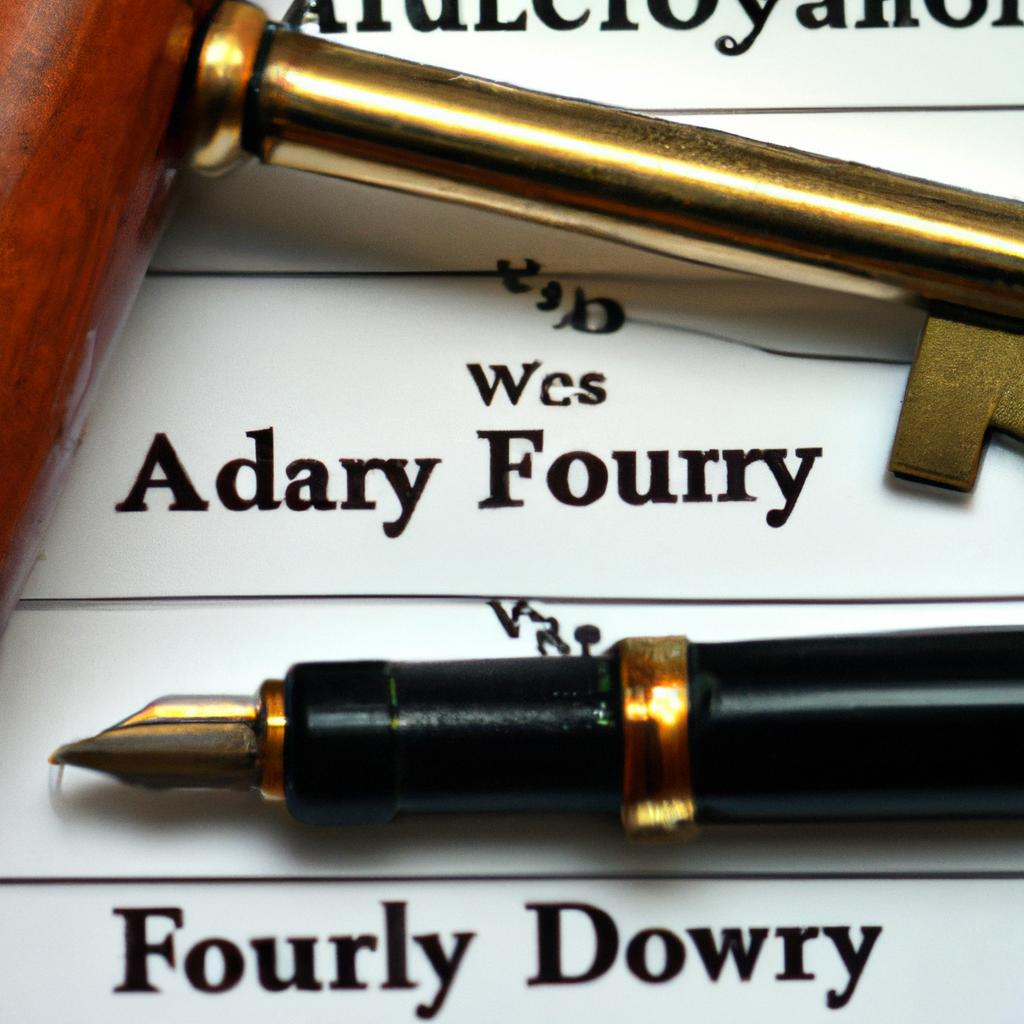In the complex and ever-evolving realm of legal instruments governing the management of assets and affairs, two common roles often play a pivotal role in safeguarding an individual’s interests: the fiduciary and the power of attorney. While both possess significant authority to act on behalf of another, understanding the nuanced differences between these designations is crucial for navigating the intricate landscape of estate planning and asset management. Join us as we delve into the intricate world of fiduciary duty versus power of attorney, exploring the unique responsibilities and legal implications that come with each designation. As experienced practitioners in New York City, the Morgan Legal Group is dedicated to providing clarity and guidance in the realm of estate planning, probate, elder law, Wills, and trusts.
Understanding the Role of a Fiduciary in Estate Planning
First and foremost, it is crucial to understand the distinct roles of a fiduciary and a power of attorney when it comes to estate planning. A fiduciary is a person who has been entrusted to act in the best interest of another party, known as the beneficiary. This individual is legally bound to adhere to a high standard of care and must always prioritize the beneficiary’s interests. On the other hand, a power of attorney is a legal document that grants an individual the authority to make financial and legal decisions on behalf of the principal. While both roles involve managing someone else’s affairs, there are key differences in terms of scope and responsibilities.
In terms of accountability, a fiduciary is held to a higher standard of care compared to a power of attorney. A fiduciary must always act in the best interest of the beneficiary and avoid any conflicts of interest. They are required to make decisions that align with the beneficiary’s wishes and financial goals. In contrast, a power of attorney is obligated to act in accordance with the principal’s instructions outlined in the legal document. They are not held to the same fiduciary standard and may have more flexibility in decision-making. Ultimately, understanding the nuances between these two roles is essential for effective estate planning and ensuring that your assets are managed responsibly and ethically.
| Role | Responsibility |
|---|---|
| Fiduciary | Act in the best interest of the beneficiary |
| Power of Attorney | Follow the principal’s instructions outlined in the legal document |

Key Differences Between a Fiduciary and a Power of Attorney
When it comes to estate planning, understanding the is crucial. While both roles involve making decisions on behalf of another person, there are distinct differences in their responsibilities and legal significance.
**Fiduciary Responsibilities:**
- Has a legal duty to act in the best interest of the individual
- Must avoid conflicts of interest
- Must keep accurate records and provide regular accountings
**Power of Attorney Responsibilities:**
- Has authority to make financial or healthcare decisions on behalf of the individual
- Must act within the scope of the authority granted in the power of attorney document
- Is typically appointed by the individual themselves

Why Choosing the Right Fiduciary is Critical in Estate Planning
When it comes to estate planning, choosing the right fiduciary is a critical decision that can greatly impact the outcome of your assets and property distribution. While many people may focus on selecting a power of attorney, it is important to understand the difference between a fiduciary and a power of attorney. A fiduciary is a legal entity or person appointed to manage your assets and make important financial and healthcare decisions on your behalf, while a power of attorney is a legal document granting someone else the authority to act on your behalf in specific circumstances.
It is crucial to carefully consider who you appoint as your fiduciary, as they will have a legal obligation to act in your best interests and handle your affairs according to your wishes. Unlike a power of attorney, a fiduciary’s responsibilities extend beyond specific tasks and decisions, encompassing a broader scope of authority and trust. By choosing the right fiduciary, you can ensure that your estate planning goals are met and your assets are protected for future generations.

Recommendations for Appointing a Fiduciary or Power of Attorney in New York City
When it comes to appointing a fiduciary or power of attorney in New York City, it’s important to understand the differences between the two roles. A fiduciary is a person who is appointed to manage someone else’s finances and make decisions on their behalf. This can include managing investments, paying bills, and making healthcare decisions. On the other hand, a power of attorney is a legal document that grants someone the authority to act on behalf of another person in legal and financial matters.
Before making a decision on whether to appoint a fiduciary or power of attorney, it’s crucial to consider the following recommendations:
- Consult with an experienced estate planning attorney to understand the implications of each option.
- Consider the level of trust and responsibility you have towards the individual being appointed.
- Evaluate the potential conflicts of interest and ensure the appointed person has the necessary skills and knowledge to handle the responsibilities.
Q&A
Q: What is the difference between a fiduciary and power of attorney?
A: A fiduciary is a person or institution that has a legal and ethical responsibility to act in the best interest of another party, while power of attorney is a legal document that gives someone else the authority to make decisions on your behalf.
Q: Can a fiduciary and power of attorney be the same person?
A: Yes, a person can serve as both a fiduciary and power of attorney, depending on the specific circumstances and the terms outlined in the legal documents.
Q: What are the key responsibilities of a fiduciary?
A: A fiduciary is required to act with honesty, loyalty, and trustworthiness in all matters related to the person or entity they are representing. They must always prioritize the best interests of the other party.
Q: How does power of attorney differ from a fiduciary relationship?
A: Power of attorney is a specific legal document that grants someone the authority to make decisions on behalf of another person, while a fiduciary relationship is a broader legal and ethical responsibility to act in the best interests of another party.
Q: Can a fiduciary be held legally accountable for their actions?
A: Yes, fiduciaries can be held legally accountable if they fail to fulfill their duties or act in a way that is not in the best interest of the party they are representing. It is important for fiduciaries to always act ethically and responsibly.
Wrapping Up
In conclusion, understanding the differences between a fiduciary and power of attorney is crucial for anyone looking to designate a representative to make decisions on their behalf. While both roles involve important responsibilities, it is important to consider the specifics of each in order to make the best decision for your individual needs. Whether you choose a fiduciary or power of attorney, it is essential to seek legal advice to ensure that your wishes are upheld and your best interests are protected. Thank you for reading.


